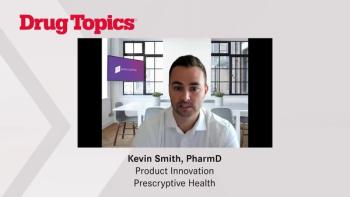
- Drug Topics February 2021
- Volume 165
- Issue 2
Social Media for Your Pharmacy
Pharmacists share tips for engaging with patients online.
Educating patients about the healing properties of lavender oil and reminding them to get flu vaccinations are 2 examples of advice that pharmacists can share on social media. But before doing so, securing buy-in from top management is essential, said Joey Mattingly, PhD, PharmD, an associate professor at University of Maryland School of Pharmacy in Baltimore.
Mattingly, who has 15 years of experience engaging in social media in the pharmacy field, was a pharmacy technician early in his career. A director-level leader at a large for-profit company near his employer didn’t like one of Mattingly’s social media posts about health policy and tried to get him fired. Mattingly emphasized that he wasn’t blogging on behalf of his employer and didn’t mask his identity online. He also kept his job, because of a leader in his organization who helped guide Mattingly in his career.
Pick the Right Social Media Platforms
Choosing the right online platforms for engagement is a good first step, said Mattingly, who added that Facebook is a great tool for a variety of audiences.
Mattingly advises pharmacies to be mindful of patient privacy. Although a patient can send tweets or post publicly to the pharmacy on Facebook about medical history, the pharmacy must respond off-line, he explained. He recommends that patients call the pharmacy instead.
Keep It Simple
Joe Moose, PharmD, a clinical pharmacist and co-owner of Mount Pleasant, North Carolina–based Moose Pharmacy,tells pharmacies to use Hootsuite, a software program that allows users to schedule posts and push them out to multiple social media platforms. He hires young people—some are high school students—to post on the pharmacy’s social media account. They understand the technology, he explained.
Creating a content calendar helps, added Moose. Still, he tells employees at Moose Pharmacy’s 8 locations to watch for special moments to capture for social media. For example, a customer came in praising the pharmacy for saving her cat. That’s a perfect story for social media, said Moose.
Hire an Agency
Theresa Tolle, BPharm, FAPhA, a pharmacist and owner of Bay Street Pharmacy in Sebastian, Florida, recently chose to work with an agency to develop her social media strategy. The agency is well established in the pharmacy field, and she learned about its work at an industry trade show. Tolle also checked references among the agency’s current clients.
One thing that persuaded her to work with the agency was that it sent her free material for social media posts. For example, some posts helped remind customers to wear masks during the coronavirus disease 2019 (COVID-19) pandemic, said Tolle. The agency also helps craft posts to timely events relevant to patients, such as open enrollment periods, and national awareness days like World Diabetes Day (November 14), and even World Kindness Day (November 13) and National Nachos Day (November 6).
Focus on Established Science; Avoid Politics
Pharmacies should focus on using social media to share evidence-based information.
For example, although wearing a mask to prevent the spread of COVID-19 has become politicized in some parts of the country, Moose insists that pharmacies should use social media to advise customers and patients to wear them. “Wearing masks saves lives,” he said.
If a patient disagrees in a post on the pharmacy’s Facebook page, the best way to handle it is to respond like this, said Moose: “Thanks for your response. We want to keep our community healthy. We think masks are a way to do that.”
Articles in this issue
almost 5 years ago
Community Pharmacies Can Make a Difference As Health Hubsalmost 5 years ago
Advocate for Your Pharmacy Staffalmost 5 years ago
ISMP’s Top COVID-19–Related Medication Safety Errorsalmost 5 years ago
Belantamab mafodotin-blmf for Relapsed or Refractory Multiple Myelomaalmost 5 years ago
A Primer on Atopic Dermatitisalmost 5 years ago
Pandemic Precautions Lead to Low Incidence of Fluabout 5 years ago
Pharmacy Benefit Changes Are Coming for Medi-Cal Beneficiariesabout 5 years ago
Promote Immunization Services More Effectivelyabout 5 years ago
Culturally Competent Care Fights Health DisparitiesNewsletter
Pharmacy practice is always changing. Stay ahead of the curve with the Drug Topics newsletter and get the latest drug information, industry trends, and patient care tips.























